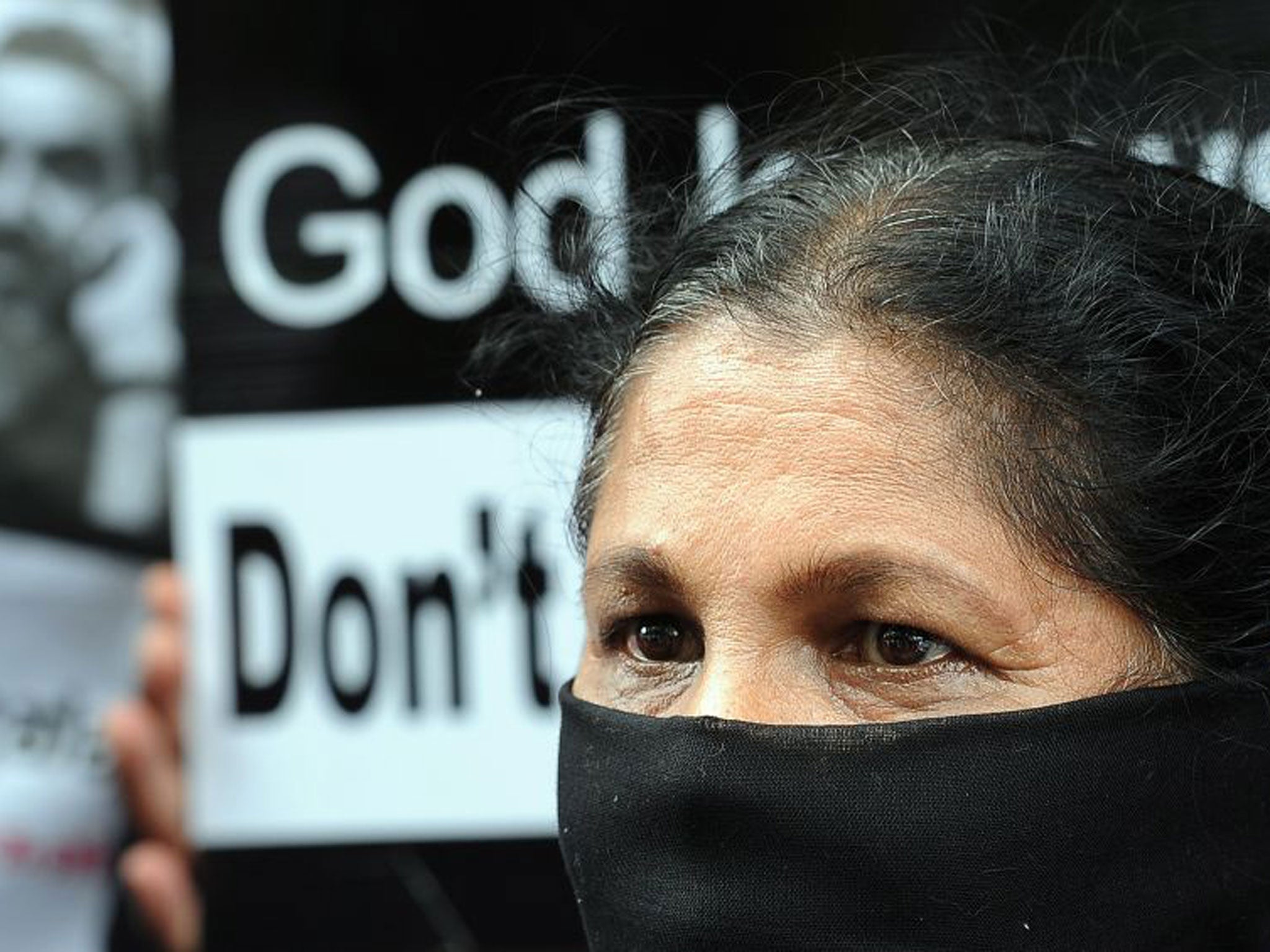Voices in Danger: 'Prageeth is my courage. He always worked for peace and unity'
Sandyha Eknaligoda's husband, the journalist and political cartoonist Prageeth Eknaligoda went missing on January 24th, 2010


Your support helps us to tell the story
From reproductive rights to climate change to Big Tech, The Independent is on the ground when the story is developing. Whether it's investigating the financials of Elon Musk's pro-Trump PAC or producing our latest documentary, 'The A Word', which shines a light on the American women fighting for reproductive rights, we know how important it is to parse out the facts from the messaging.
At such a critical moment in US history, we need reporters on the ground. Your donation allows us to keep sending journalists to speak to both sides of the story.
The Independent is trusted by Americans across the entire political spectrum. And unlike many other quality news outlets, we choose not to lock Americans out of our reporting and analysis with paywalls. We believe quality journalism should be available to everyone, paid for by those who can afford it.
Your support makes all the difference.Sandhya Eknaligoda will never forget 24 January 2010. It was the day, she says, that the happiness drained from her life. The day this calmly spoken Sri Lankan last saw her husband, the journalist and political cartoonist Prageeth Eknaligoda.
Before he left for work that morning, Prageeth, then 50, ate his usual bowl of brown rice, kissed his two sons goodbye, and boarded his bus. It was a busy time at the website he worked at, Lanka E-news, with the general election looming in five days. Prageeth was working on an investigation into the alleged use of chemical weapons against civilians by Sri Lankan forces in the fight against the Tamil separatists.
His journalism was powerful. His columns portrayed corruption, political malpractice and alleged government atrocities in the long war in the north. He was one of the leading dissident voices in the media. His cartoons were funny, sometimes brutal, often profound comments on political power.
He worked as normal at his office that day. But, some time after leaving for home in the evening, he vanished. A colleague phoned Prageeth’s mobile at 8.30pm, only to hear a strange noise on the line before it went dead. That was the last anybody heard of him.
As Sandhya told The Independent from her home this week: “Since the day Prageeth disappeared, there has not been any happiness in this house… [When I go home ] I feel like I’m walking into a cemetery or mausoleum.”
She was instantly worried as he had been suffering harassment for months. Two weeks earlier he said he believed he was on a government hit list. He had, she says, good reason to be concerned. The previous August he was seized by a gang of men and held for nearly a day, tied up and blindfolded. According to the Committee to Protect Journalists, his kidnappers told him: “You are talking too much – just be careful and keep your mouth shut.”
In the following months he noticed a vehicle without number plates parked outside his home. He heard regular clicking noises on his phone. Mystery callers phoned and threatened to break his arms and legs if he did not stop. When he failed to return home, Sandhya went to the police. First they told her she had gone to the wrong police station. Then they accused her of lying, claiming her husband was hiding at home in a bizarre publicity stunt.
Since then, she has met with repeated refusals to act and silence from the Sri Lankan government. She has tried the country’s Human Rights Commission. She appealed to Sri Lanka’s First Lady, Shiranthi Rajapaksa.
Sandhya even spoke in Geneva last year on the International Day of the Disappeared, personally handing a letter to Ban Ki-moon, the UN Secretary General. “My absolute faith is that Prageeth is alive,” she says. “Prageeth is my courage. He always worked for justice and equality. He was never a violent person. He never believed in violence, he never promoted violence. He always worked for peace and unity.”
She is convinced the government is behind Prageeth’s disappearance. Now she is sure she, too, is under state surveillance. A policeman recently admitted as much, she says, telling her: “We know what you are doing.”
For its part, the government has declined to respond to her queries. The only official response has been from Mohan Peiris, a legal adviser to the cabinet in Sri Lanka. He claimed the journalist had left the country as a refugee. For seven months Sandhya asked for his evidence for such a statement.
Eventually, Peiris declared that somebody from Sri Lankan intelligence – he claimed he couldn’t remember who – had told him “only God knows about Prageeth Eknaligoda”.
Sandhya spoke of her support for The Independent’s Voices in Danger campaign. She urges readers to publicise this article, and Prageeth’s case, through social media and raise it with their MPs. She urges Independent readers: “Keep Prageeth’s issue alive. I can survive one way or another, but I need your help to keep the cause alive.”
For further details of this case, and the interview with Sandhya, see Voices in Danger, here. Amnesty International asks readers to write to President Mahinda Rajapaksa, Presidential Secretariat, Colombo 1, Sri Lanka.
Join our commenting forum
Join thought-provoking conversations, follow other Independent readers and see their replies
Comments